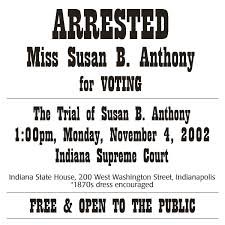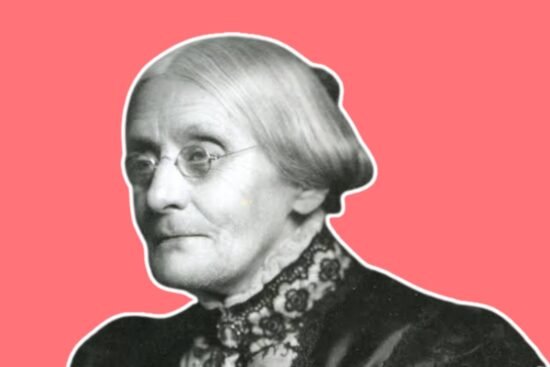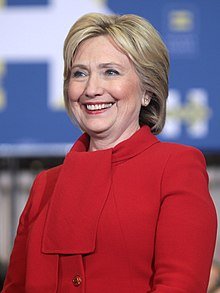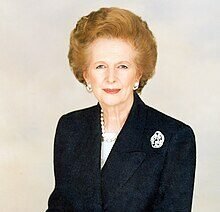Susan B Anthony:Early Life and Influences:
Susan Brownell Anthony was born on February 15, 1820, in Adams, Massachusetts, into a Quaker family deeply committed to principles of equality and social justice. Raised amidst the fervor of abolitionist sentiments, Anthony’s upbringing instilled in her a profound sense of duty to combat injustice in all its forms. Her father’s refusal to support slave labor and her exposure to Quaker teachings laid the groundwork for her lifelong dedication to activism.Activism and Suffrage Movement:
Anthony’s journey into activism began with her fervent involvement in the abolitionist movement. Inspired by prominent figures like William Lloyd Garrison and Frederick Douglass, she fearlessly spoke out against the scourge of slavery, despite societal norms that sought to silence women’s voices. It was her fateful encounter with Elizabeth Cady Stanton in 1851 that catalyzed her entry into the women’s suffrage movement. The two forged a powerful partnership, traveling the country to deliver impassioned speeches and tirelessly advocate for women’s right to vote.Susan B Anthony:Arrest and Trial:

Legacy and Impact:
Susan B Anthony’s legacy reverberates through the corridors of time, a testament to the power of perseverance and passion in the face of adversity. Her tireless efforts paved the way for future generations of women to assert their voices and claim their rightful place in society. In 1920, the 19th Amendment to the U.S. Constitution, granting women the right to vote, was passed, a fitting tribute to Anthony’s lifelong crusade for equality.Susan Brownell Anthony was renowned as a champion of various causes, including temperance, abolition, labor rights, and equal pay for equal work. However, she became particularly prominent as one of the leading figures in the women’s suffrage movement. Alongside Elizabeth Cady Stanton, Anthony traveled extensively across the country, delivering impassioned speeches advocating for women’s right to vote.
Susan B. Anthony is hailed as a pioneer crusader for women’s suffrage in the United States. Serving as president of the National Woman Suffrage Association from 1892 to 1900, her tireless efforts played a crucial role in advancing the cause of women’s suffrage. Ultimately, her advocacy contributed significantly to the passing of the Nineteenth Amendment to the Constitution in 1920, which granted women the right to vote.
Susan B. Anthony’s face graced the Anthony Dollar, marking the first instance of a woman appearing on a circulating U.S. coin. Minted from 1979 to 1981 and again in 1999, this coin replaced the Eisenhower Dollar and was issued in honor of Anthony’s leadership in the women’s suffrage movement.
Susan B. Anthony’s advocacy for women’s rights stemmed from various influences, including her involvement in the temperance movement. When she was denied the opportunity to speak at a temperance convention due to her gender, Anthony was inspired to shift her focus towards fighting for gender equality and women’s rights.
Susan B. Anthony drew inspiration from various sources, including her Quaker upbringing, which instilled in her a belief in equality under God. She famously declared, “Organize, agitate, educate must be our war cry,” embodying her commitment to activism and social reform. Initially engaging in anti-slavery abolitionism, Anthony’s dedication to equality and justice guided her throughout her illustrious career as one of America’s most renowned suffragists.






Leave a Reply